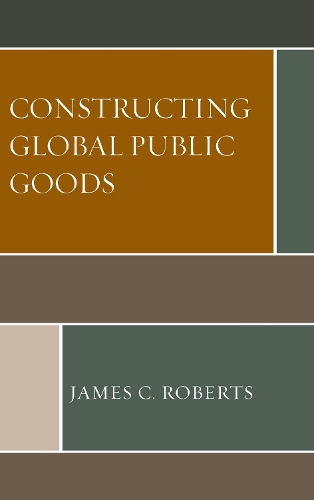
Constructing Global Public Goods
(Hardback)
Publishing Details
Constructing Global Public Goods
By (Author) James C. Roberts
Bloomsbury Publishing PLC
Lexington Books
23rd May 2019
United States
Classifications
Professional and Scholarly
Non Fiction
Politics and government
338.9
Physical Properties
Hardback
164
Width 161mm, Height 240mm, Spine 17mm
445g
Description
Why do international actors provide global public goods when they could free-ride on the production of others Constructing Global Public Goods examines this question by understanding the identities and preferences of the actors. Most rational choice models of public goods explain the public goods decision by examining the strategic interactions among the actors. They generally avoid the question of how utilities and preferences are formed. Constructing Global Public Goods brings a constructivist approach to the study of public goods by recognizing that the actors utilities and preferences are socially constructed from the identities the actors take on in the choice situation. The book develops a formal model that links the interpretation of unobserved utilities to preferences for the public goods outcome. It then applies the model to case studies on global monetary management, collective security, and protecting human rights. Bringing constructivism into the public goods decision allows the analysis to look beyond the limited Prisoners Dilemma based model of most rational choice approaches and recognizes that the decision whether or not to produce a global public good is a complex web of social, political and cultural factors.
Reviews
This book breaks new ground in studying the social construction of the politics of global public goods. Prof. Roberts argues that in order to apply the insights of rational theories of public goods provision effectively we need first to look at what state preferences are, and how they came to be that way. Why do some states see themselves as public goods providers and others not The answer lies in state identity as much as in rational calculation. -- Samuel Barkin, University of Massachusetts, Boston
Author Bio
James C. Roberts is professor of political science at Towson University
